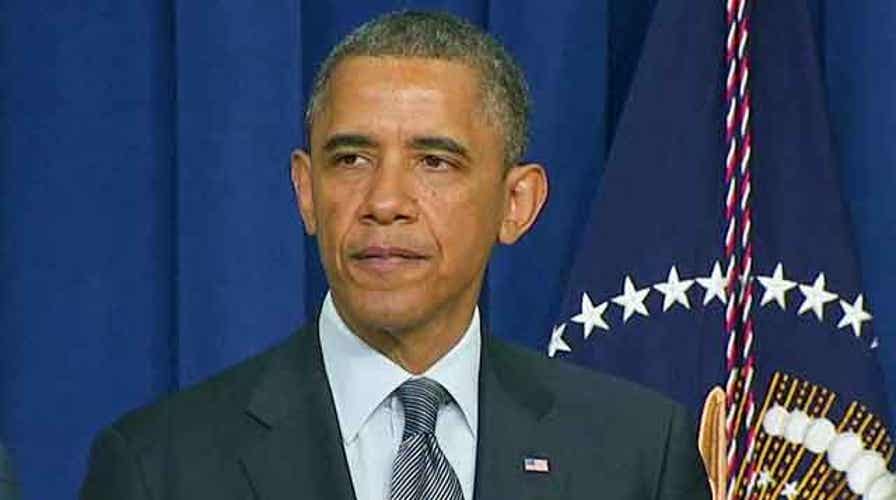President Obama's gun-control package was always going to be a tough sell in the Republican-led House -- but the plan is already running into resistance, or at least hesitation, from moderate Democrats in the Senate.
The lukewarm response in the Senate to Obama's highly anticipated anti-gun violence plan portends an uphill climb for the legislation. And it underscores how, as the president's backers prepare to launch a veritable campaign to promote the plan, they will be pressuring members of their own party as much as reluctant Republicans.
No Democrat in the Senate came out against Obama's gun plan. But several appeared to be on the fence or noncommittal, even as the president's allies in the House cheered the package as a long-sought solution to America's gun violence problem.
"We must find a way to balance our Second Amendment rights with the challenges of mental illness, criminal behavior and the safety of our schools and communities," Sen. Mary Landrieu, D-La., said in a statement, noting Louisiana's tradition of hunting, target shooting and gun collecting. She said she would give the proposals "serious consideration."
The president on Wednesday called for a new and stronger assault-weapons ban as well as a 10-round cap on magazines and universal background checks. The last assault-weapons ban expired in 2004 amid questions about its effectiveness and political considerations. The shocking mass shooting at an elementary school in Newtown, Conn., has renewed interest in seeking a stricter crackdown on weapons that do the most damage -- yet more than a decade later, lawmakers remain leery about the perception of infringing on Second Amendment rights.
Many of the Democrats voicing concern are up for re-election in 2014. A total of 20 Democratic seats are up in the next cycle -- 22 when special elections are included.
Among those senators is Sen. Mark Begich, D-Alaska, who has parted with the president before on energy and other issues.
He said he was "pleased" with Obama's call for an increase in mental health services, but said "there is no quick fix when it comes to keeping our families and communities safe."
"We must make smart investments to increase our safety while ensuring American's Second Amendment rights are protected," he said.
Sen. Joe Manchin in West Virginia and Sen. Max Baucus in Montana have also declined to take a position on the president's proposals.
Even Senate Democratic Leader Harry Reid of Nevada, who is considered to have a pro-gun rights record, said only that the chamber would "consider" the legislation.
"The tragedy at Sandy Hook was just the latest sad reminder that we are not doing enough to protect our citizens -- especially our children -- from gun violence and a culture of violence, and all options should be on the table moving forward," he said.
House Speaker John Boehner similarly did not take a position on the plan after Obama announced it Wednesday.
One lawmaker to watch is Sen. Al Franken in Minnesota. Considered among the most liberal members of the Senate, Franken nevertheless represents a state with a strong gun-rights culture and one where both parties are well-represented - he is up for re-election in 2014.
His office scrambled on Thursday to clarify an article which suggested he was holding back on endorsing an assault-weapons ban.
In a carefully worded statement, Franken said he's "always supported the Second Amendment rights of Minnesotans to own firearms for collection, protection, and sport. But I also think we need to find a balance between those rights and the safety of our children and our communities."
He noted he co-sponsored legislation to ban large magazines and supports "the principle that we should reinstate a ban on assault weapons."
Franken, though, did not endorse any specific assault weapons ban -- like one being introduced by Senate colleague Dianne Feinstein of California -- and stressed that he would "carefully review any proposal to do that."





